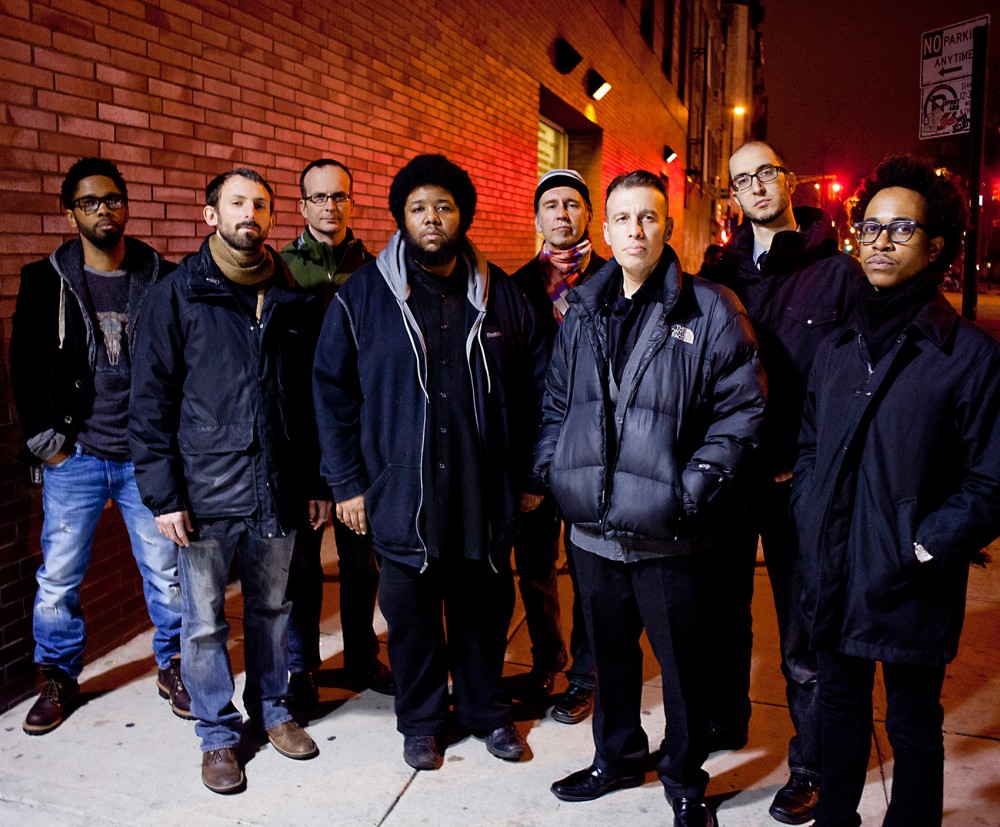Alto saxophonist and composer Steve Lehman uses the word “jazz” not as a confining genre label, but as a jumping-off point into a realm of intense musical experimentation.
His eight-piece group, the Steve Lehman Octet, plays at the Walker Art Center on Saturday at 8 p.m.
The Octet consists of Lehman on alto saxophone, Jonathan Finlayson on trumpet, Mark Shim on tenor saxophone, Tim Albright on trombone, Jose Davila on tuba, Chris Dingman on vibraphone, Drew Gress on bass and Tyshawn Sorey on drums.
Lehman talked with the Daily about his background and approach to playing and composing jazz.
How would you describe the kind of jazz you play?
I work in a lot of different musical idioms, always with the focus of doing something that’s as unique and personal as possible.
That tends to be the music that listeners appreciate and relate to the most in my experience as a performer — I try to use that as a guiding principle regardless of the musical context or materials that I’m working with.
What do you mean by ‘musical idiom’?
I think it’s good for people to feel free to think of that as they choose. Some people relate it to musical genres. Some people tie it to different musical communities of actual human beings. And I think it has to do with all of those things.
An idiom is a way of doing things. It’s a history; it’s a protocol. And how you relate that to music — people do that in different ways.
Do you have musical influences outside of jazz?
I think all the musicians I work with, whether they’re electronic musicians or hip-hop or contemporary classical musicians, all play a role in helping me learn about how music works and what brings it together.
When did you start being interested in exploring the possibilities of jazz?
At first I was trying to imitate the music of musicians that I had a real connection to, like Charlie Parker and Jackie McLean.
As I delved into that more deeply, I realized that the history of jazz is the history of people trying to create personal, innovative music. It became natural to follow that paradigm.
Was there a moment when you decided you wanted to start writing and playing original pieces?
It was a gradual incremental process. It’s like anything, like learning language. First you copy the people around you, your parents, take in information that’s around you, go to school, study grammar, and then little by little you are able to articulate things in your own voice and your own words.
I’m always working on [my musical voice], trying to develop it more and more.
What inspires you to start an experimental project? Are you inspired by something, or do you already have ideas in your head?
It’s different every time.
For the group that’s going to be playing at the Walker, it’s really putting the focus on musical improvisation, so my No. 1 goal as a composer is to create a meaningful context for musical improvisation.
[I want] all the other decisions I make about harmony, melody and rhythm to be an offshoot of that initial goal of how I can create an environment of musical improvisation that can be meaningful for the performer and meaningful for the listener, too.
The Steve Lehman Octet
Where Walker Art Center, 1750 Hennepin Ave., Minneapolis
When 8 p.m. Saturday
Cost $25, $22 for Walker Art Center members








